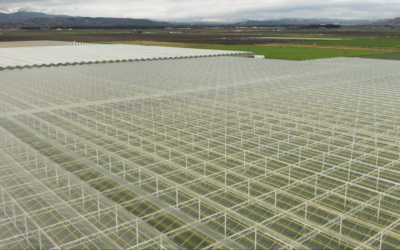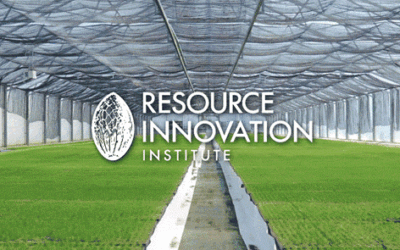This is the year impact investing gets real. Really.
That’s the thread connecting a half-dozen or so forecasts from Equilibrium Capital’s Dave Chen, who returned to ImpactAlpha’s Returns on Investment podcast for a New Year’s check-in on the progress of the “institutional shift” in impact investing. As Dave says, “Everybody loves a list.”
Climate change will drive financial markets. “We’re seeing this year the institutionalization of climate change in all sorts of investment products,” Chen said, including not just renewable energy, but water, land-use and agriculture. Tallies of investment capital don’t yet capture all of the effects. Climate concerns are showing up in insurance risk premiums and even in terms for debt-capital, such as Danone’s green bond and Olam’s $500 million club loan, in which improved environmental performance serves to lower the cost of capital. “We’re seeing the operationalization of climate risk,” inside corporations as well as investment portfolios.
Expect a raft of new ‘sustainable infrastructure’ funds. Expect major asset managers from Ares Management Corp. ($125 billion in assets under management) to Blackstone ($457 billion AUM) to launch billion-dollar “sustainable infrastructure” funds, Chen says. Chicago-based Harrison Street ($17.2 billion AUM) quietly launched a “social infrastructure fund” last year. “The big players are coming in,” Chen said. Significantly, infrastructure funds expect returns in the high-single digits, from long-lived assets with reliable cash flows. Think sewage facilities, not tech unicorns.
Green bonds in. Coal plants out. The power of debt is reflected in the growth of green bonds, plain-vanilla offerings backed by corporates, project developers and government agencies. That growth slowed in 2018 to just 12% (after expanding 77% in 2016 and 77% in 2017), but still reached $120 billion. “As the equity markets go into volatility, and interest rates go up, the bond markets should recover nicely, and green bonds with that,” Chen says. Meanwhile, banks are moving to get out of the business of financing coal. “The market is speaking,” in the form of large pension funds that are major holders of bank stocks.
Workforce housing is becoming a core asset. Affordable housing is among the most stable asset classes in real estate. Different than subsidized housing, workforce housing is aimed at firefighters, teachers and others who increasingly can’t afford to live in the cities in which they work. The result: affordable workforce housing has long waiting lists, low vacancy rates and stable tenants. “The reason many pensions look at this is that it is an infinite market that has incredibly stable characteristics. it fits the criteria of a core portfolio holding: it’s really stable, it’s really long-term,” Chen says.







